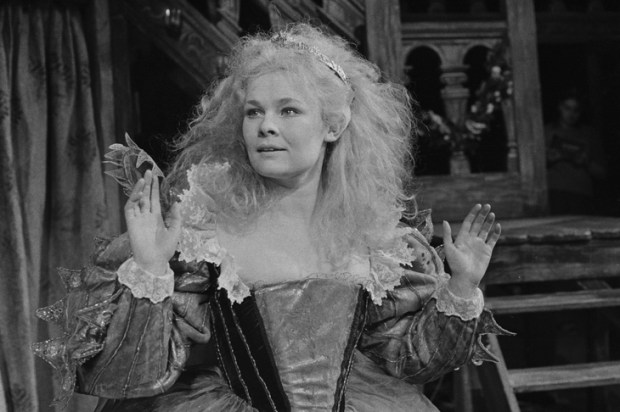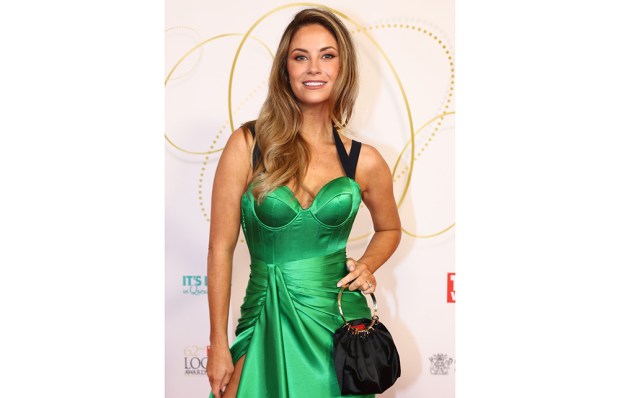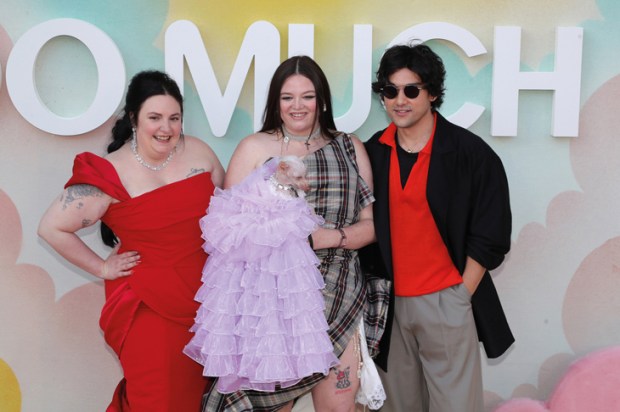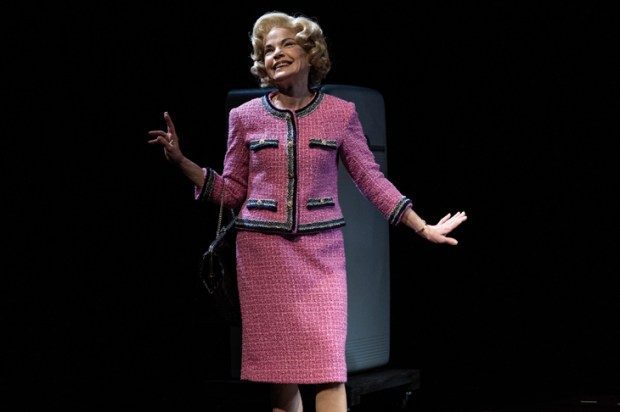It was fascinating to see Patti LuPone that immense Broadway musical star interviewed with such palpable reverence by the ABC’s interrogator-in-chief Sarah Ferguson. Patti LuPone is continuous with the glories of the Broadway musical. She first came to prominence in Evita on Broadway. She told Sarah Ferguson how closely she had worked with Stephen Sondheim and how demanding he had been on her musically that she hit the note in one go and not slide up to it. It’s fascinating too that LuPone should have been the original choice for the role of Norma Desmond in Sunset Boulevard and created it in London in the original Trevor Nunn production before the lure of Glenn Close proved irresistible in America. But LuPone is the musical theatre star who can jump from Anything Goes to Sunday in the Park with George or Sweeney Todd. It’s in her blood whether we’re looking at the older vintage musicals – some people would say Gypsy was the greatest of them all (and it’s interesting to see that Imelda Staunton who is said to have played the Ethel Merman part dazzlingly was made a dame the other day) – through to Sondheim at his most dramatically experimental in Passion. It’s as if LuPone was put on earth to incarnate the range of a complex mutating art form. Her Melbourne concerts at the Palais are on 24 and 25 June.
It’s interesting that Glenn Close should have put her signature on Sunset Boulevard but the woman is unstoppable. We should be grateful to her for that grippingly dark TV serial thriller Damages with Australia’s Rose Byrne – at its best one of the greatest things ever made for television. She did South Pacific without being remotely ‘as corny as Kansas in August’ or any other kind of ‘little hick girl’ and she also presumed – there’s no other word for it – to play the Katharine Hepburn role, Eleanor of Aquitaine, on television with Patrick Stewart in the Peter O’Toole role of Henry II in that medieval imitation of Who’s Afraid of Virginia Woolf. And that’s a reminder of what an uneven actor that undoubtedly great-on-a-good-day actor, Anthony Hopkins is. He is not by any means great in The Lion in Winter. And you can count them off. His Lear for the TV version of 2018 is the work of a great actor but it is nothing like great acting. His ‘Sir’ in The Dresser – the play based on Sir Donald Wolfit – is not a patch on Albert Finney in the original film nor is Ian McKellen in the Tom Courtney role of the dresser (which we saw done on stage by Warren Mitchell in 1981).
On the other hand there’s the Hopkins who had greatness written all over him. Even Hollywood with its vast capacity for impercipience was staggered when he turned into Tolstoy’s Pierre in the BBC War and Peace, a performance which captures all the tentativeness and all the greatness of soul of that extraordinary hero of a blundering man. It belongs to the period when Hopkins says he actually believed (in his folly he would add) that an actor could be a Beethoven figure, that he could be creatively great, not just interpretatively. That led him to storm out of a National Theatre production of Coriolanus in rehearsal because of the fear of failure just as it led Jonathan Miller to cast him as Othello in the BBC complete Shakespeare of the 1980s even though the Moor was already the jewel in the crown for any black actor though it was not yet the case that only a black actor could play it. Rightly or wrongly this Othello (with Bob Hoskins as Iago) is the most highly regarded of those Shakespeares and perhaps the music and the magic of the Hopkin’s performance win out over the fussiness of Miller’s direction even if that direction is not a patch on the direction of Australia’s Elijah Moshinsky in Coriolanus with Alan Howard and Irene Worth or Cymbeline with Helen Mirren.
Moshinsky did Shadowlands, the C.S. Lewis play which was filmed with Hopkins, and he can be a wonder on film. He’s very good in Woody Allen’s You Will Meet a Tall Dark Stranger and of course he’s a wonder as Hannibal Lecter in both The Silence of the Lambs for which he got an Oscar and The Red Dragon: the soft insinuatingly telepathic voice is a permanent contribution to the depiction of evil (what an Iago he would have made) and he won the Oscar again for The Father, the portrait of a man adrift in his loss of memory.
Besides, who would have thought he could play Pope Benedict with such light grace and gravity. Now he is to play another man of wisdom, Sigmund Freud, who in this new film Freud’s Last Session is to find himself in dialogue with – who else? – the C.S. Lewis of Matthew Goode.
C.S. Lewis was the comrade-in-arms of J.R.R. Tolkien though they despised each other’s work. Ian McKellen owes to the role of Gandalf in Peter Jackson’s epical dramatisation of Tolkien’s saga to the fact that he became famous, like Geoffrey Rush, as a mature not a youthful actor. Nevermind that he was, partnering Judi Dench, the greatest Macbeth since Olivier as well as a notable Richard II and Marlowe’s Edward II. Well, there looks like a new bit of Tolkien screen adaptation in the works The Hunt for Gollum and he is also taking on one of the great Shakespearean stage roles which he would never have dreamt of doing before, Falstaff, the old rogue of a fat knight who happens – and it’s the key to his frailty in a world that seems armoured with wisecracks – to love the young Prince Hal who will become Henry V.
McKellen used to say he wouldn’t play Falstaff because he didn’t get the jokes but something has changed and Sir Ian who played Sorin, the old uncle in the Trevor Nunn/Frances Barber Seagull which toured here with his King Lear in 2007 with a lightning sense of comedy that would enhance a Noel Coward play has changed his tune: he’s playing the fat knight in a production that compresses the two parts of Henry IV.
Got something to add? Join the discussion and comment below.
You might disagree with half of it, but you’ll enjoy reading all of it. Try your first month for free, then just $2 a week for the remainder of your first year.













